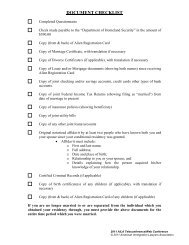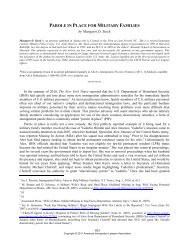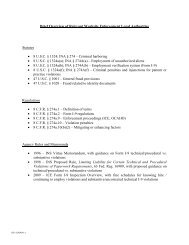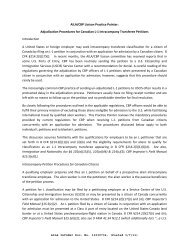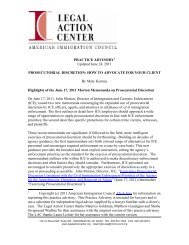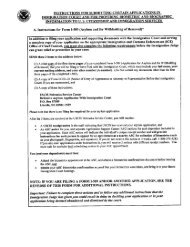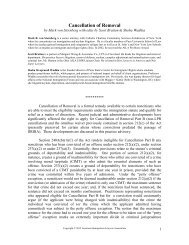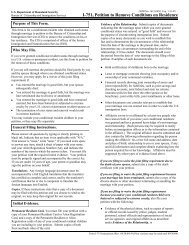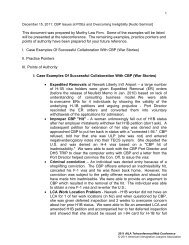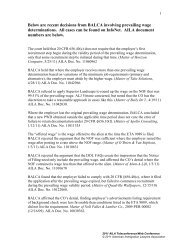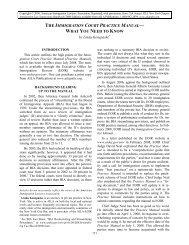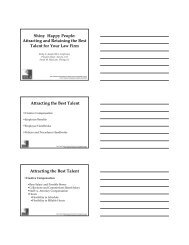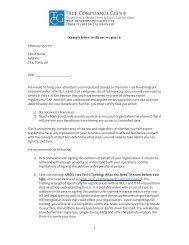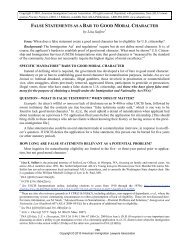american immigration lawyers association eb-5 ... - AILA webCLE
american immigration lawyers association eb-5 ... - AILA webCLE
american immigration lawyers association eb-5 ... - AILA webCLE
You also want an ePaper? Increase the reach of your titles
YUMPU automatically turns print PDFs into web optimized ePapers that Google loves.
(a)In circuits that require a pending proceeding, the defendantmust have knowledge of a pending judicial proceeding.Pettibone v. United States, 148 U.S. 197, 205 (1893)(i)“Knowledge” does not require that defendant knowthat proceeding was federal in nature. United States v.Ardito, 782 F.2d 358 (2d Cir. 1986). See also UnitedStates v. Aragon, 983 F.2d 1306 (4th Cir. 1993)(b)(c)(d)In United States v. Aguilar, 515 U.S. at 599, the SupremeCourt stated that if the “defendant lacks knowledge that hisactions are likely to affect the judicial proceeding, he lacksthe requisite intent to obstruct”In United States v. Washington Water Power Co., 793 F.2d1079 (9th Cir. 1986), the Ninth Circuit held likelihood thatconversation included news of an indictment, based on oneparty’s likely status as a witness, was enough to proveknowledge of pending federal proceedingThe Second Circuit has held that one who makes statementsto a federal investigator not knowing that they would berepeated during the grand jury investigation cannot beconvicted under § 1503. United States v. Schwarz, 283 F.3d76, 109 (2d Cir. 2002)4. Corrupt Intent to Obstruct or Interfere(a)The Circuits differ in their interpretation of the intentrequirement. The First Circuit aptly points out the source ofthe conflict: confusion over the “the scienter element in theobstruction statute . . . in part, results from the promiscuoususe in the cases of the ambiguous word ‘intent,’ which canmean either knowledge (of consequences) or purpose (toachieve them).” Brady, 168 F.3d at 578(i) In interpreting the corrupt intent requirement in 1893,the Supreme Court had held that “specific intent toviolate the statute must exist to justify a conviction.”Pettibone, 148 U.S. at 207. Many years later, inUnited States v. Neiswender, the Fourth Circuit heldthat an attorney can be held guilty of obstructingjustice without proving he had or could have had adirect involvement with the judicial proceedings. 59021us\JUCEARO\7667714.1



